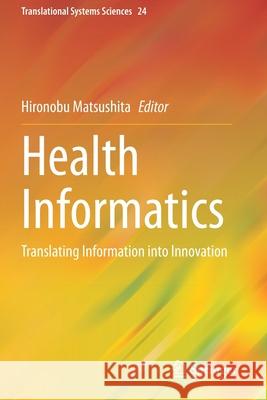Health Informatics: Translating Information Into Innovation » książka
topmenu
Health Informatics: Translating Information Into Innovation
ISBN-13: 9789811537837 / Angielski / Miękka / 2021 / 190 str.
Health Informatics: Translating Information Into Innovation
ISBN-13: 9789811537837 / Angielski / Miękka / 2021 / 190 str.
cena 523,30
(netto: 498,38 VAT: 5%)
Najniższa cena z 30 dni: 501,19
(netto: 498,38 VAT: 5%)
Najniższa cena z 30 dni: 501,19
Termin realizacji zamówienia:
ok. 22 dni roboczych.
ok. 22 dni roboczych.
Darmowa dostawa!
Kategorie:
Kategorie BISAC:
Wydawca:
Springer
Język:
Angielski
ISBN-13:
9789811537837
Rok wydania:
2021
Ilość stron:
190
Waga:
0.27 kg
Wymiary:
23.39 x 15.6 x 1.02
Oprawa:
Miękka
Wolumenów:
01
Dodatkowe informacje:
Wydanie ilustrowane











